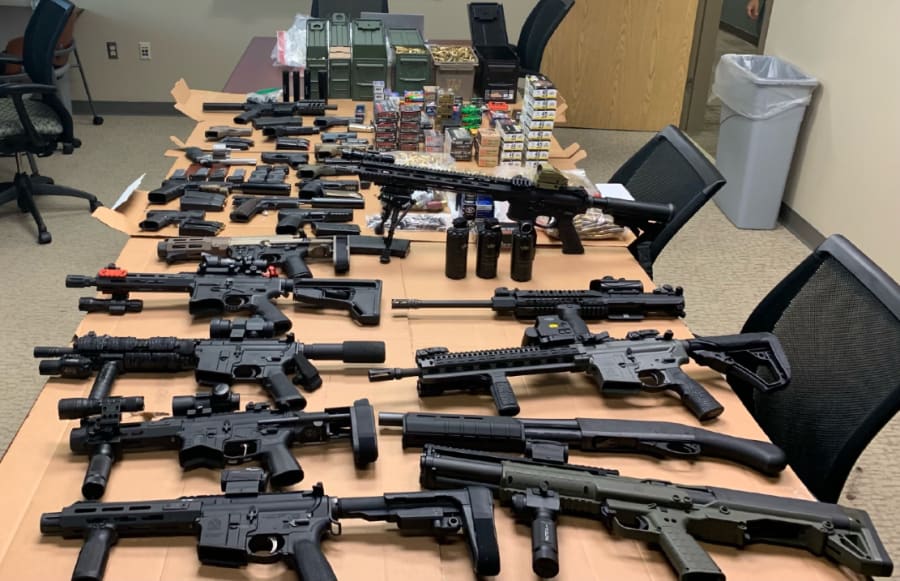Soros-backed prosecutor Kimberly Gardner resigns from St. Louis office amid scandal
A scandal-ridden prosecutor backed by billionaire George Soros announced she is resigning as the Missouri attorney general moved to have her forcibly removed from her office.
St. Louis Circuit Attorney Kimberly Gardner, the city’s top prosecutor, confirmed her resignation in a letter just days after she defiantly declared “I ain’t leaving.”
Both Republicans and Democrats across Missouri have demanded her resignation for years, accusing her office of dysfunction and mishandling cases.
Her resignation is effective June 1.
Earlier this year, Missouri Attorney General Andrew Bailey had filed a petition quo warranto to forcibly remove Gardner from her office over repeated instances where her office allegedly failed to enforce the law.
Bailey told Fox News that nearly 12,000 criminal cases have been dismissed under Gardner.
He also says more than 9,000 cases have been tossed just before going to trial, forcing judges to dismiss more than 2,000 cases due to what Bailey described as a failure to provide defendants with evidence and speedy trials.
Despite her resignation, Bailey said he still intends to move forward in his effort to remove Gardner from office.
“There is absolutely no reason for the circuit attorney to remain in office until June 1,” Bailey told Fox News in a statement. “We remain undeterred with our legal quest to forcibly remove her from office. Every day she remains puts the city of St. Louis in more danger. How many victims will there be between now and June 1? How many defendants will have their constitutional rights violated? How many cases will continue to go unprosecuted?”
Gardner refused to step down for months, blasting Bailey’s efforts a political “witch hunt” and a form of “voter suppression,” according to Fox. Gardner, the first Black female prosecutor in the city, has also accused her critics of racism and sexism.
In February, Missouri house members passed a bill that would give the governor the ability to strip the authority of any elected prosecutor to handle violent crime cases.
The bill initially targeted Gardner, but was later amended to extend to any elected prosecutors across the state following concerns singling out one prosecutor would be unconstitutional, according to the Missouri Independent.
“The most recent bill is part of a coordinated, long-standing strategy to undermine me and my efforts to make the City of St. Louis safer and fairer. Since day one of my tenure as Circuit Attorney, I have experienced attacks on my reforms, on my judgment, my integrity, on my prosecutorial discretion, on my responsibility to direct the limited resources of this office and more,” Gardner wrote in her resignation letter.
“ … I cannot be the final Circuit Attorney ever to be elected in St. Louis. You must be able to have a voice in your criminal justice system. And we must allow our office to continue to operate.
“The most powerful weapon I have to fight back against these outsiders stealing your voices and your rights is to step back. I took this job to serve the people of the City of St. Louis, and that’s still my North Star,” she wrote.
Gardner is additionally facing two contempt of court cases against her after no one from her team showed up for several high-profile prosecutions, including a murder.
Judge Michael Noble announced last week he would appoint a special prosecutor to build the a case against Gardner.
“It appears that Ms. Gardner has complete indifference and a conscious disregard for the judicial process,” Noble said, according to the St. Louis Post-Dispatch
Gardner’s office resembled a “rudderless ship of chaos,” he added.
It’s unclear if the contempt hearings will be dropped.
Several assistant prosecutors recently left Garner’s long understaffed office, according to Fox News. Her dysfunctional office had been long-plagued with personnel issues and low morale.
In her resignation letter, Gardner claimed her office faced an “onslaught” of records requests “that no office in the country could reasonably fulfill” as well as “attacks on our hard-working line attorneys designed to demoralize these public servants.
“There is no sign that the onslaught would stop for as long as I am in office,” she said.
Gardner was among the first prosecutors Democratic mega-donor Soros bankrolled in 2016 and then again during her 2020 re-election campaign, where she received 60 percent of the vote.
The controversial attorney announced last month that she will be running for a third term despite the backlash against her.

